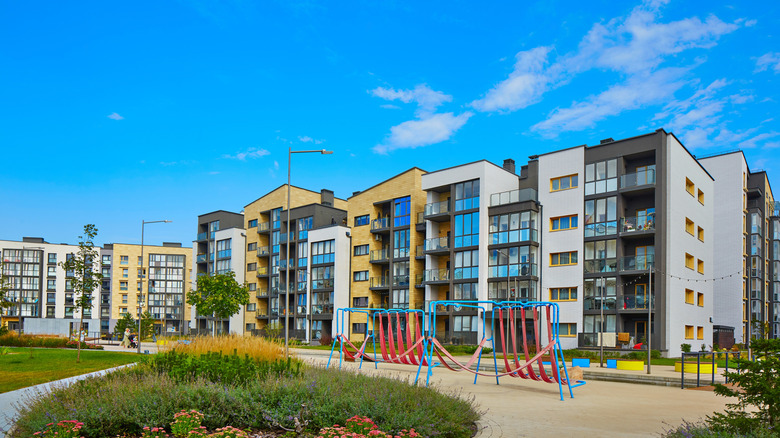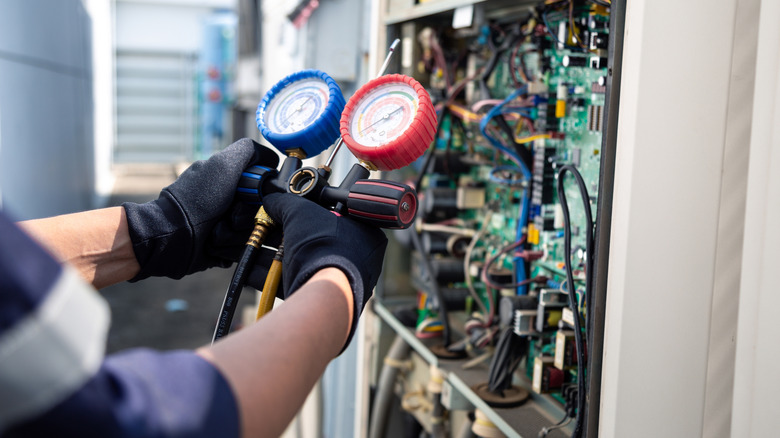What Apartment Tenants Need To Know Before Going On A Rent Strike
One of the most appealing aspects of renting a house or apartment rather than buying one is that you're not responsible for repairing the HVAC system if the air conditioning goes out or replacing broken appliances. The landlord or property management company is obligated for repairs and maintenance that occur in the course of normal wear and tear. But what if your landlord won't fix that pesky water leak or leaves you sweltering with a broken A/C despite repeated notifications?
You might be tempted to withhold rent until the property manager makes appropriate repairs. In some cases, this can be legal, but in others, it's a myth about renting you should stop believing. You may face eviction and damage to your credit history. Before you choose this route, contact the agency that handles tenant rights issues in your state to make sure it's legal. Laws can vary widely by state, but in general, you'll need to properly document the steps you've taken to notify the landlord as well as the unsafe or uncomfortable conditions. If the issue affects multiple tenants in a building, a group rent strike may be more effective. However, it can also make your case more complicated since the landlord may be able to take collective action against everyone at once. Seek legal advice before you decide to go on a rent strike to protect your interests.
Alternatives to a rent strike
Fortunately, there are alternatives to going on a rent strike that can provide legal protection and help ensure your property manager makes timely, appropriate repairs. The implied warranty of habitability is a legal concept that's recognized in almost all states and jurisdictions in the U.S. It requires that landlords maintain safe and healthy living conditions even if it's not specifically mentioned in your lease or rental agreement. However, you may be responsible for maintenance such as cleaning a window unit to prep it for summer.
Your first step should be to notify your landlord in writing of needed repairs. Document the issue with photographs or video evidence and provide a reasonable amount of time for them to make repairs. If your heat goes out when temperatures are below freezing, it's reasonable to expect immediate action. If your faucet is dripping, you may have to wait longer.
After a reasonable amount of time has passed without repairs, send a second written notice. Refer back to the date of the first notice and let them know you will escalate the issue if it isn't addressed. Your next steps may include alerting your local health department or building code inspector, seeking mediation, ending your lease, or filing a lawsuit.

